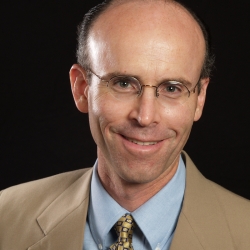
David DeRose, MD, MPH
Timeless Health Prescriptions from the Beatitudes
Yes, we have been called to minister to the physical and spiritual needs of others. This is what we do as medical missionaries. But what about our own personal spiritual and physical needs? Below are eight timeless prescriptions, derived from the Beatitudes, that we, as health professionals, need in our own lives to protect us from the stresses and temptations that seek to erode our commitment to missionary-minded medicine and dentistry. And of course, they’re also timeless prescriptions that each of our patients desperately need—whether or not they have high blood pressure.
Eight Timeless Prescriptions for Health and Wholeness
1. Be Humble
2. Acknowledge Your Pain
3. Submit
4. Aspire
5. Forgive
6. Don’t Compromise
7. Mediate
8. Persist
Timeless Prescription #1: Be Humble
“Blessed are the poor in spirit, for theirs is the kingdom of heaven.” (Matthew 5:3, ESV)
What is humility? Is humility just another form of cowardice or timidity? Is it lacking a backbone and letting others walk all over you? Authors Rick Howard and Jamie Lash put it this way, “Real humility is not thinking less of ourselves but thinking of ourselves less.”1 It is “the art of self-forgetfulness” as one blogger put it.2 Expressed another way, humility involves an accurate assessment of myself, lacking conceit, with an attitude toward benefitting others no matter what their position is in life.
In the medical community, humility is now being viewed as an important characteristic of the most effective healers. Jack Coulehan, MD, MPH, recently went on record: “The new professionalism movement in medical education takes seriously the old medical virtues. Perhaps the most difficult virtue to understand and practice is humility, which seems out of place in a medical culture characterized by arrogance, assertiveness, and a sense of entitlement. Countercultural though it is, humility need not suggest weakness or lack of self-confidence. On the contrary, humility requires toughness and emotional resilience. Humility in medicine manifests itself as unflinching self-awareness; empathic openness to others; and a keen appreciation of, and gratitude for, the privilege of caring for sick persons.”3
However, humility is a prerequisite not only for optimally effective health professionals. It is important for each of us as we become engaged in our own personal healing process. One of our greatest dangers is feeling we know best how to care for ourselves. Along these lines, ingrained in most healers’ medical consciousness is the adage: “The doctor who treats himself has a fool for a patient and a fool for a doctor.”

<< | Table of Contents | >>
